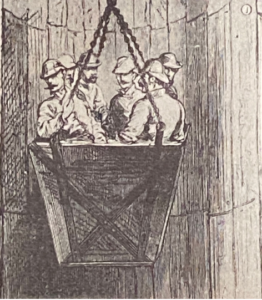Pank-A-Squith: The Board Game of the Political Movement


Aunt Lavinia has made the tea—Lady Grey, as befits a late Autumn evening with the nights drawing in and frost crackling underfoot—and set out the toasted tea-cakes. It’s time to settle in for a genteel game of Pank-a-Squith, the game that celebrates mass arrests, hunger strikes, and the growing militancy of the Women’s Social and Political Union (WSPU).

Pank-a-Squith (read Pankhurst versus Asquith, the Liberal Prime Minister who dangled the vote in women’s faces for years without ever delivering on his empty promises) was one of several games launched in the first decade of the twentieth century to publicize the cause of women’s suffrage, and to raise funds. There were also the Suffragette, Panko, and Holloway card games, and the Suffragetto and In and Out of Prison board games.

The aim of the game is to successfully travel from the home square to the Houses of Parliament, in the centre of the board. Pank-a-Squith was sold in the Women’s Social and Political Union (WSPU) shop, and advertised in the WSPU’s organ Votes For Women. The advert explained that the game was devised to “popularize the cause and the colours” of the movement.
There is absolutely no evidence that Algernon (Quasley-Botham-Squyre), Nikola (Ferdinand) or Bethany (Brainsly-Whatton-Whiffle) ever played Pank-a-Squith during the long winter evenings at Slaithwaite Hall.
X.T. Pfuffenstoffel







